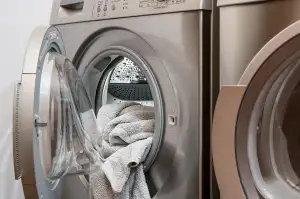Safe Storage of Eggs: How Long Can Eggs Sit Out? Expert Tips for Home Storage

Proper egg storage is crucial for maintaining their freshness and ensuring food safety. Eggs are a highly perishable food item that can quickly spoil if not stored correctly. By understanding the shelf life of eggs and implementing safe storage practices, we can minimize the risk of consuming spoiled eggs and protect ourselves from potential health hazards. In this article, we will explore how long eggs can sit out, factors affecting their shelf life, and expert tips for home storage to ensure egg safety.
The shelf life of eggs at room temperature
The shelf life of eggs at room temperature is relatively short compared to refrigerated eggs. While refrigerated eggs can last for several weeks, eggs left at room temperature should be consumed within a week. This is because the warm environment accelerates the growth of bacteria, which can lead to spoilage. It is important to note that as time goes on, the quality and freshness of eggs deteriorate, even if they do not appear spoiled. Therefore, it is recommended to store eggs in the refrigerator to ensure their longevity and safety.
Factors affecting egg shelf life
Factors affecting egg shelf life include the age of the eggs, how they were handled and stored before reaching the consumer, and environmental conditions. Fresh eggs have a longer shelf life than older ones. Proper handling and storage techniques are crucial in maintaining egg quality. Exposure to high temperatures, fluctuations in temperature, and excessive humidity can accelerate spoilage. It is important to note that washing eggs removes their natural protective coating, making them more susceptible to bacterial contamination and reducing their shelf life.
Safe storage of eggs
Safe storage of eggs is crucial to ensure their freshness and prevent any potential health risks. The best option for storing eggs is refrigeration, as it helps to maintain their quality and extend their shelf life. It is recommended to store eggs in the main body of the refrigerator rather than the door, as the temperature fluctuates more in the door.
Temperature and humidity are also important considerations when storing eggs. The ideal temperature range for egg storage is between 35°F (2°C) and 40°F (4°C). Humidity should be kept relatively high, around 70-80%, to prevent moisture loss from the eggs.
Proper handling and storage techniques are essential for maintaining egg safety. Eggs should always be stored in their original carton to protect them from absorbing odors and flavors from other foods in the refrigerator. It is advisable not to wash eggs before storing them, as this can remove their natural protective coating.
Additionally, it's important to handle eggs with clean hands and avoid cracking them. Cracked or damaged eggs should be discarded immediately, as they are more susceptible to bacterial contamination.
By following these guidelines, you can ensure that your eggs remain safe for consumption and maintain their quality for a longer period of time.
Refrigeration: the best option
When it comes to storing eggs, refrigeration is undoubtedly the best option. The cool temperature of the refrigerator helps to slow down the growth of bacteria and keep the eggs fresh for a longer period. Ideally, eggs should be stored at a temperature below 45°F (7°C) to ensure their safety and quality.
By refrigerating eggs, you can extend their shelf life significantly. While eggs can typically last up to 2 weeks at room temperature, refrigerated eggs can remain fresh for up to 5 weeks or even longer. This is especially important if you buy eggs in bulk or have a surplus from your own backyard flock.
It's worth noting that in some countries, like the United States, refrigeration of eggs is mandatory by law due to concerns about Salmonella contamination. However, even in countries where refrigeration is not required by law, it is still highly recommended for optimal egg safety.
Remember to always place your eggs in the main body of the refrigerator rather than on the door as temperatures on the door fluctuate more frequently. Additionally, keep them away from strong-smelling foods as they can absorb odors easily.
By following these simple guidelines and opting for refrigeration, you can ensure that your eggs stay safe and fresh for an extended period, allowing you to enjoy them without worrying about any potential health risks.
Temperature and humidity considerations
Temperature and humidity are crucial factors to consider when it comes to the safe storage of eggs. Eggs should be stored at a consistent temperature of 40°F (4°C) or below to prevent bacterial growth. Higher temperatures can accelerate spoilage, while lower temperatures can cause the eggs to freeze and potentially crack.
Humidity is also important as excessive moisture can lead to the growth of bacteria on the eggshell. It is recommended to store eggs in a cool and dry place, away from any sources of moisture such as sinks or dishwashers.
Fluctuations in temperature and humidity should be avoided as they can negatively impact the quality and safety of the eggs. For this reason, it is best not to store eggs on the refrigerator door, where they may be exposed to varying temperatures each time the door is opened.
By ensuring proper temperature and humidity conditions, you can extend the shelf life of your eggs and reduce the risk of spoilage or contamination.
Proper handling and storage techniques
Proper handling and storage techniques are crucial for maintaining the freshness and safety of eggs. Firstly, it is important to handle eggs with clean hands to prevent any contamination. Secondly, store eggs in their original carton to protect them from absorbing odors and flavors from other foods in the refrigerator. Additionally, avoid washing eggs before storage as this can remove the protective coating on the shell. Lastly, always check for cracks or damage before storing as cracked eggs are more susceptible to bacterial contamination. By following these simple steps, you can ensure that your eggs stay fresh and safe for consumption.
Signs of spoilage in eggs
Signs of spoilage in eggs can be easily identified if you know what to look for. One of the most obvious signs is a foul odor. If your eggs have a strong, unpleasant smell, it is likely that they have gone bad and should not be consumed. Another sign of spoilage is a change in color or texture. Fresh eggs have clear, thick egg whites and bright yellow yolks. If the egg white appears cloudy or the yolk is discolored, it may indicate spoilage. Additionally, a spoiled egg may have a slimy or runny consistency instead of its usual firmness. It's important to note that cracked or broken eggs are more susceptible to contamination and should be discarded as well. To ensure food safety, always inspect your eggs before use and discard any that show signs of spoilage.
Health risks of consuming spoiled eggs
Consuming spoiled eggs can pose serious health risks. As eggs age, they become more susceptible to bacterial contamination, particularly from Salmonella. This bacteria can cause food poisoning, resulting in symptoms such as diarrhea, abdominal cramps, and fever. In severe cases, it can lead to dehydration and hospitalization. It's important to note that even a small amount of contaminated egg can cause illness. Therefore, it is crucial to always check for signs of spoilage and properly store eggs to minimize the risk of consuming spoiled ones.
Proper storage of eggs is crucial to maintain their freshness and prevent the risk of foodborne illnesses. By refrigerating eggs at a temperature below 45°F (7°C), we can extend their shelf life significantly. Additionally, it is essential to store eggs in their original carton to protect them from absorbing odors and moisture from the refrigerator.
Maintaining the right temperature and humidity levels is key. Eggs should be stored in the main section of the refrigerator, rather than on the door where temperatures fluctuate more frequently. It is also important to avoid storing eggs near strong-smelling foods as they can absorb odors.
Proper handling techniques are equally important for egg safety. Always wash your hands before and after handling eggs, and avoid cracking them on the edge of bowls or countertops to prevent potential contamination. If an egg shows any signs of spoilage, such as an off odor or unusual appearance, it should be discarded immediately.
Consuming spoiled eggs can pose serious health risks, including salmonella poisoning. Symptoms may include diarrhea, abdominal pain, fever, and vomiting. Infants, pregnant women, older adults, and those with weakened immune systems are particularly vulnerable.
In conclusion, ensuring egg safety starts with proper storage techniques. Refrigeration remains the best option for extending their shelf life while minimizing health risks. By following these expert tips for home storage, we can enjoy fresh and safe eggs for longer periods while protecting ourselves from potential foodborne illnesses.
Published: 05. 03. 2024
Category: Home



